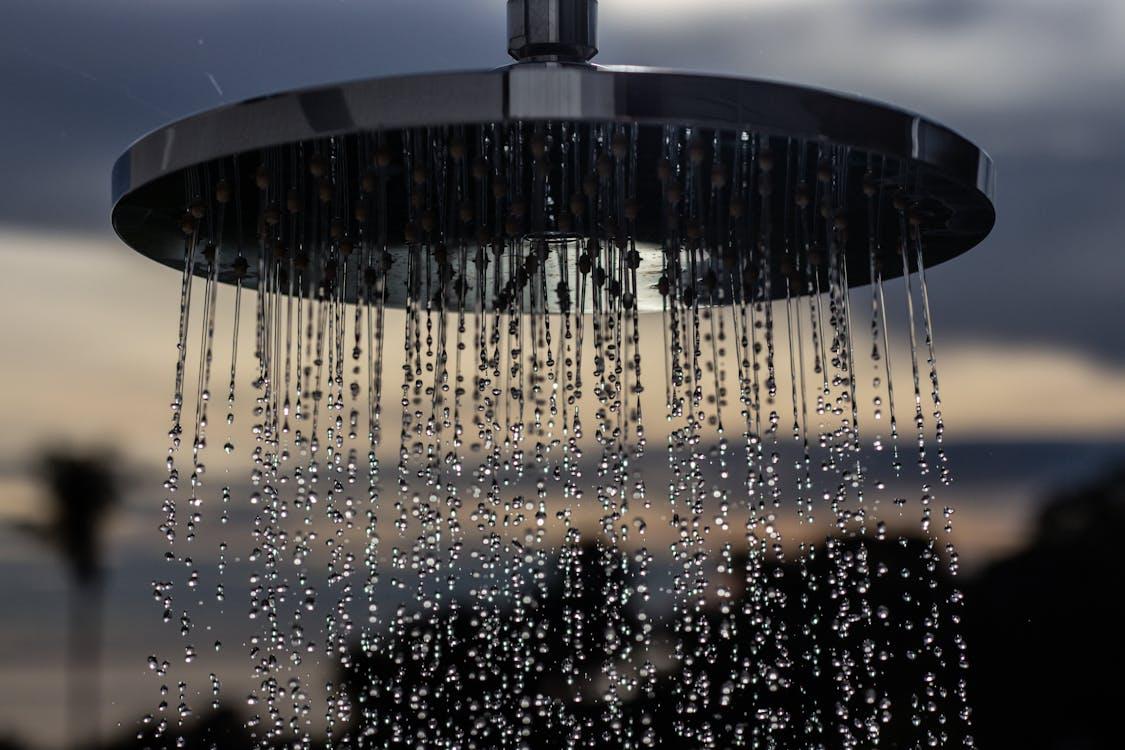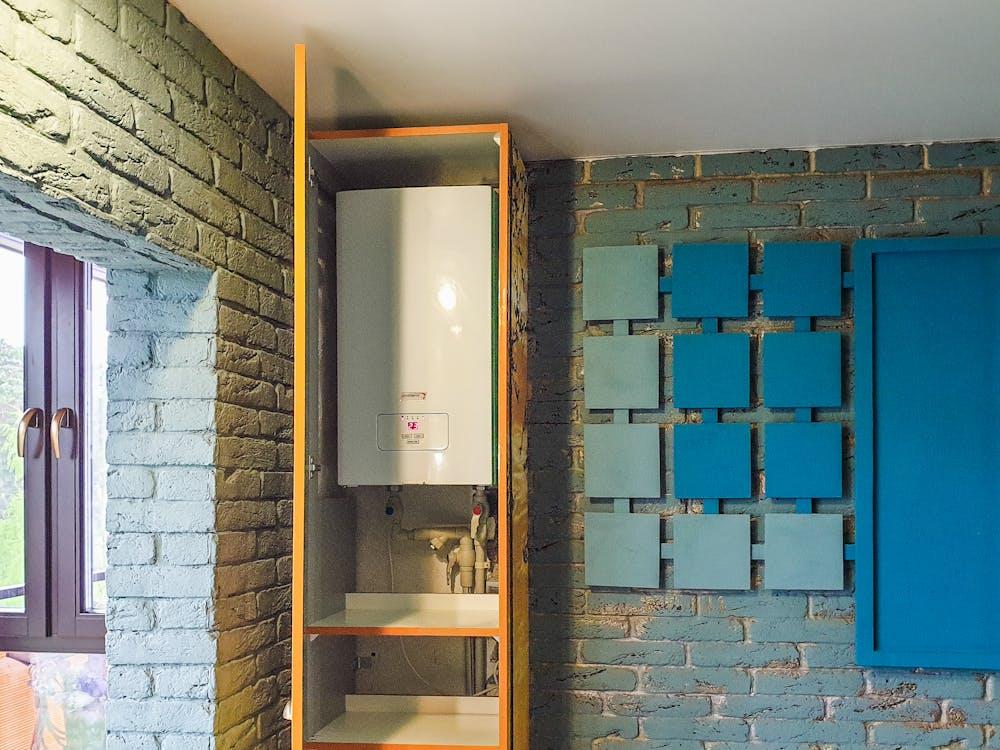Did you know that tankless water heaters can be 24–34% more energy-efficient for homes using under 41 gallons of hot water daily, and still 8–14% more efficient for larger households?
If you’re tired of cold showers, high energy bills, or bulky tanks taking up space in Santa Monica, this could be the solution. Let’s learn in detail why tankless water heater installation is the right choice.
The Problem with Traditional Tank Heaters
- Constant Start-Stop Cycles: Conventional single-family storage heaters store 20–80 gallons, reheating them 24/7 to stay hot. That ghost energy usage sneaks into your bills.
- Limited Hot Water Supply: Once that tank is drained, you’re in cold-water territory—potentially mid-shower.
- Bulk and Clunkiness: Those tanks take up 12–16 square feet of space in closets or garages.
- Leak and Rupture Risk: A ruptured tank can flood your home with dozens of gallons of water quickly.
- Sediment Build-Up: Mineral deposits collect in tanks, lowering efficiency and potentially tainting your tap water.
Why Tankless Water Heaters Make Sense
1. Endless Hot Water for Busy Households
With a tankless water heater, hot water doesn’t run out. The unit heats water instantly as it flows through, meaning you get consistent hot water no matter how many people are showering or how many appliances are running. This is a game-changer for Santa Monica families juggling laundry, dishes, and back-to-back showers. No more waiting for a tank to refill or hurrying to finish your shower before the hot water runs out.
2. Smart Energy Use Saves Money
Traditional water heaters constantly reheat water to keep it ready, even when you’re not using it. That’s wasted energy. Tankless systems only heat water when you actually need it. As mentioned above, according to the U.S. Department of Energy, homes that use less than 41 gallons of hot water daily can save 24%–34% on energy bills with a tankless unit. Even higher-usage homes see around 8%–14% savings. That translates to roughly $100 to $200 in savings per year, helping offset the upfront cost.
3. Longer Lifespan and Fewer Repairs
A traditional tank water heater lasts about 10 to 15 years. A tankless water heater, with proper maintenance, often runs smoothly for 20 years or more. Even better, their design allows easy replacement of individual parts. This reduces the likelihood of full-system failure and makes long-term ownership less stressful and more affordable.
4. Space-Saving Design
In a city like Santa Monica, where square footage comes at a premium, tankless units free up valuable real estate. Mounted directly on a wall, they’re compact and can be installed in small utility rooms, garages, or even outside (with proper weatherproofing). That means more storage space and a cleaner layout for your home.
5. Lower Flood Risk
One of the most dreaded failures in traditional systems is a ruptured tank. A 50-gallon tank can flood a home in minutes if it bursts. Since tankless systems don’t store water, the flood risk drops significantly. If there’s ever a problem, it’s typically isolated and much easier to manage without emergency damage control.
6. Cleaner, Better-Tasting Water
Tank-style heaters are notorious for sediment buildup. Minerals, rust, and debris collect at the bottom of the tank, impacting water quality over time. This buildup can also clog lines or reduce heating efficiency. A tankless water heater eliminates this risk because there’s no sitting water. What you get is fresher, cleaner water with less potential for discoloration, odor, or unpleasant taste.
7. Modern Technology and Environmental Benefits
Today’s tankless water heaters come with smart features like digital temperature control, Wi‑Fi connectivity, and remote monitoring. You can track water usage, set schedules, and even receive maintenance alerts from your phone. Beyond the convenience, they’re eco-friendlier. Using less energy reduces your carbon footprint. Many models are ENERGY STAR® certified and qualify for local rebates or tax credits, making them a smart financial and environmental decision.
Are Tankless Water Heaters Right for You?
Before making the switch, ask yourself a few key questions:
1. Do you often run multiple showers or appliances at the same time?
If yes, a properly sized tankless water heater can provide consistent hot water to multiple outlets without running out.

2. Do you want to save space and reduce energy costs?
Tankless systems are compact and wall-mounted, making them ideal for tight spaces, and they help cut down energy bills thanks to their on-demand heating.
3. Do you have high energy bills from water heating?
A tankless unit can lower your energy use by as much as 30%, depending on your water habits and home size.
4. What is your household’s average daily hot water usage?
Tankless water heaters are sized based on flow rate (gallons per minute). If your household uses a lot of hot water at once (showers, laundry, dishwasher), you may need a higher-capacity unit—or even multiple units.
5. How cold is the incoming groundwater in your area?
In colder regions, groundwater is significantly cooler, which means your tankless system has to work harder to heat it. In Santa Monica, this isn’t a major concern, but it still factors into sizing and performance.
6. Is your current venting setup compatible?
Tankless water heaters require specific venting materials (often stainless steel) and routes. You might need to retrofit your current setup, which adds to installation costs.
7. Do you have the upfront budget for purchase and installation?
While long-term savings are real, the initial cost of a tankless system (including installation and potential electrical/gas upgrades) is typically higher than a tank system.
8. Do you want to switch energy sources (e.g., gas to electric or vice versa)?
If you’re thinking of switching fuel types, it’s important to weigh the cost of upgrading infrastructure, permits, and ongoing utility costs.
9. How important is low-maintenance operation to you?
Tankless systems require regular descaling in areas with hard water. If you’re not prepared for light annual maintenance, the system may not operate efficiently.
10. Is water pressure a concern in your home?
A tankless system relies on steady water pressure to activate. If your home suffers from low water pressure, this can lead to performance issues.
11. Are you planning to stay in your home for over 10 years?
With a lifespan of 20+ years, tankless water heaters offer great long-term value for homeowners who don’t plan on moving soon.
12. Is your home’s gas or electrical system due for an upgrade?
Tankless water heater installation often requires a higher-capacity gas line or a dedicated electrical circuit, so it’s worth coordinating this with any planned upgrades.
Why Professional Tankless Water Heater Installation Matters
A tankless water heater is a smart investment—but only when it’s installed correctly. Hiring licensed plumbers isn’t just about safety. It’s about getting the performance, efficiency, and longevity you’re paying for. Here’s why professional installation matters more than you might think:
1. Proper Sizing for Your Home
Tankless units don’t store hot water—they heat it as needed. That means correct sizing is critical. A licensed plumber will assess your household’s hot water habits, including how many fixtures you typically use at the same time (like running a shower and dishwasher). This helps them select a unit with the right flow rate (GPM) and temperature rise for your setup.
Why it matters:
Undersizing means cold water halfway through your shower. Oversizing means you’re paying more than you need to. Accurate sizing ensures consistent hot water without waste or disappointment.
2. Correct Venting and Fuel Supply
A gas-powered tankless water heater requires special venting—usually stainless steel, high-temperature pipes that safely exhaust combustion gases. They also need a proper gas line that can deliver the increased demand these units require.
Why it matters:
Incorrect venting can lead to dangerous carbon monoxide buildup or system shutdowns. An undersized gas line can choke performance and reduce efficiency. Licensed plumbers know what’s safe and code-compliant.
3. Code Compliance and Safety
A professional plumber in Santa Monica ensures your installation meets local plumbing and building codes, which vary by city and often require permits and inspections.
Why it matters:
Cutting corners may cause safety hazards, insurance issues, or problems during home resale. With a licensed installer, you can rest easy knowing the job is done right and legal.
4. Protects Your Manufacturer’s Warranty
Most major tankless water heater brands only honor their warranties if the unit was installed by a licensed plumber. That means if you go the DIY route and something goes wrong later, you could be on the hook for hundreds or even thousands of dollars in repairs or replacement.
Why it matters:
Saving a little on installation now could cost you a lot down the road. Protect your warranty by going with certified plumbing services.
5. Long-Term Maintenance and Support
A quality tankless water heater can last 20+ years, but it needs some care, like annual descaling or flushing, especially if your area has hard water (as many parts of California do). Licensed plumbers can set up a maintenance plan to keep your unit running efficiently and catch small issues before they become big ones.
Why it matters:
Routine professional water heater maintenance extends the life of your system, keeps it energy-efficient, and ensures you’re always covered under warranty terms.

